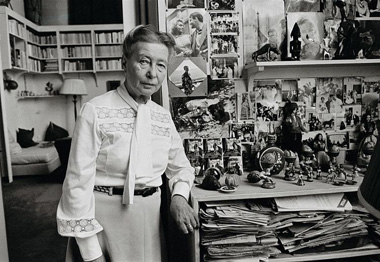Though I enjoyed this novel it confirms my personal preference for Levy's “living autobiography” over her fiction. “August Blue” follows the story of famed classical pianist Elsa M. Anderson during a period of time when the disruptions caused by the recent pandemic are gradually winding down. She was a child prodigy raised by a gay teacher who is now old and frail. She longs for a connection with her lost mother. After dying her hair blue and scandalously flubbing an important concert, she bounces around Europe giving private lessons to troubled privileged children and having glancing encounters with a woman she views as her double. She imagines clipped exchanges of dialogue with her and their relationship is teasingly antagonistic. This novel is definitely interesting and fun, but I didn't love it. I think this is because there's often a strong conceptual aspect to Levy's fiction which makes it like an intellectual puzzle. It feels satisfying to complete. However, it doesn't have enough of an emotional pull for me to feel as involved as I'd ideally like to because the characters are more like pieces of that puzzle rather than real people.
Maybe it's inevitable with a writer who moves between autobiographical books and fiction, but there is a blending between the two forms. Levy might or might not be cognizant of this. Fans who read “Real Estate” will recall Levy had great trouble remembering the code to get into her Paris apartment and in “August Blue” there's a scene where Elsa struggles to remember the correct sequence of numbers to get through the front door of her temporary accommodation in Paris. I could cite more examples and there's no problem with reusing details such as this, but it makes me more conscious that the character of Elsa is like classical pianist cosplay for Levy. Elsa has a slightly bohemian, shabby glamour to her with her penchant for chic cocktails, scented hand cream and casual sex. Her characteristics and attitude feel so strongly aligned with the spirit of Levy as described in her memoirs. Again, this isn't necessarily an issue especially if the reader of this novel hasn't also read her autobiographical trilogy. But personally reading it makes me constantly aware I'm sitting in a theatre watching Levy's actors rather than feeling so immersed I forget the artifice.
Despite all this, there is truly a lot to enjoy in this novel. Levy creates delicious imagery such as scene where a man removes the spines of a sea urchin from Elsa’s fingers while she can feel that man's erection through his shorts. There's a vivid sense of atmosphere created of what life was like during this period of the pandemic as mask wearing became sporadic and the after effects of getting the vaccine shot created a worry that the recipient had caught the virus. Levy exhibits a wonderful sense of humour in several scenes with near slapstick-like situations such as when Elsa loudly discusses her potential sexual relationship with a man while they meet at a noisy brasserie or when a man sarcastically misquotes Walt Whitman at someone over FaceTime. The author is also highly adept at satisfying putdowns towards particularly unsavoury figures such as a sexist bigot Elsa and a Rastafarian encounter in a London park where she observes “The white man's head was so infected with anger and self-pity it made his eyes stupid and small.” Conversely, there's a sweet affection shown towards the adolescents she teaches.
Overall, I grew to really like Elsa as a character. There's a cumulative poignancy to the brief conversations in her head with her doppelgänger who questions and chides Elsa about her insecurities and fears. Forms of doubling are shown in other aspects of the story as well but the symbolism didn't add up to saying anything that meaningful. I reckon these issues would feel more powerful if Levy discussed them frankly in memoir form rather than mediating them through the cipher of this character. I fully respect Elsa is a fiction and that her history and preoccupations probably differ from Levy's own. Maybe it's an unfortunate byproduct for an author who slides between two forms of writing that there will be a confusion between the two. But I feel the blending of autobiography and fiction in “August Blue” doesn't have the same expansive imaginative power as it does in recent novels such as “Solenoid” or “Still Born”.














